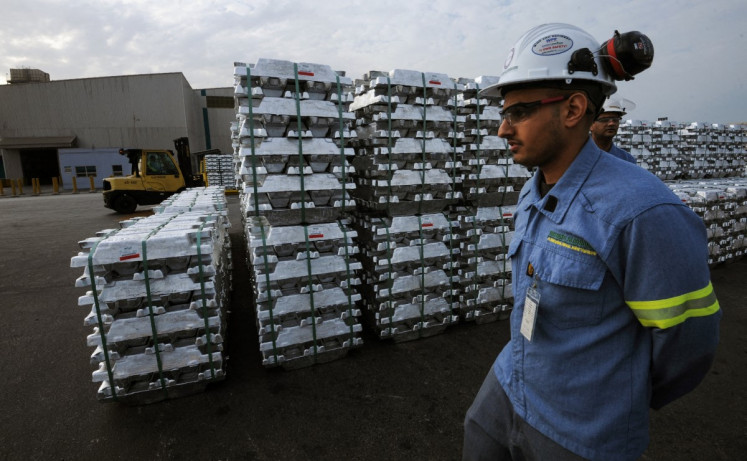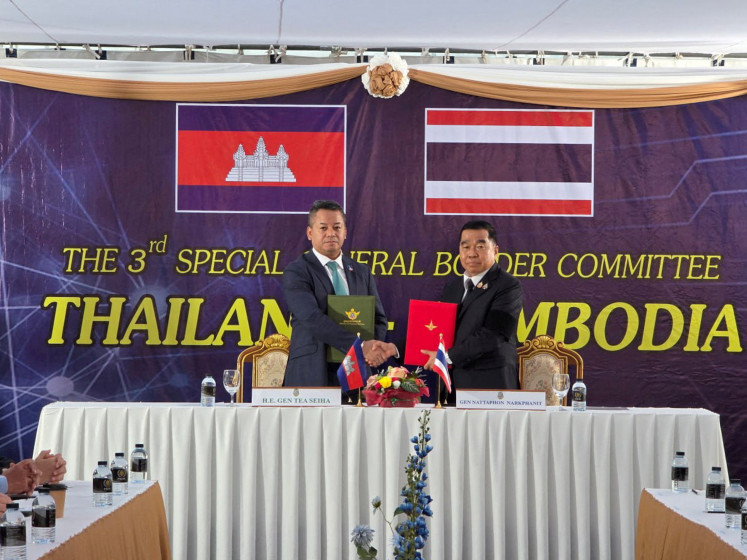Popular Reads
Top Results
Can't find what you're looking for?
View all search resultsPopular Reads
Top Results
Can't find what you're looking for?
View all search resultsWhy NU matters
There is no denying that the grassroots Islamic group is the most influential mass organization in the world’s third-largest democracy, which hosts the world’s largest Muslim population. For nearly a century, it has been a political and cultural force to be reckoned with. If controlling Java is key, it only makes sense that having strong clout within NU, with which the majority of Muslims in Java identify, is critical.
Change text size
Gift Premium Articles
to Anyone
W
hen journalists and analysts refer to Nahdlatul Ulama (NU) as the largest Islamic organization in Indonesia, they are basically trying to show in the least contentious way how influential it is in Indonesian political and cultural lives.
There is no denying that the grassroots Islamic group is the most influential mass organization in the world’s third-largest democracy, which hosts the world’s largest Muslim population. For nearly a century, it has been a political and cultural force to be reckoned with. If controlling Java is key, it only makes sense that having strong clout within NU, with which the majority of Muslims in Java identify, is critical.
The organization’s national congresses have thus been traditionally mired in political intrigues, with competing factions within the group often seen as representing certain political or oligarchic interests. This is a reflection of how powerful the group is.
It is only natural that some of its members call for the organization to return to its original pledge to stay away from politics, known as the khittah. The call was initially made in 1950s, but only gained traction in the early days of the New Order during which NU chose to express its political opposition to the Soeharto regime.
Only with the Reform Era did NU “return” to practical politics, with many of its members establishing political parties to take part in the first democratic election since 1955. One of these was the National Awakening Party (PKB), which succeeded in getting the NU’s most charismatic cleric and chairman Abdurrahman “Gus Dur” Wahid elected to the presidency.
In the decades since Reform, NU has become even more politically engaged than the political parties claiming to represent its members. President Joko “Jokowi” Widodo, who chose NU cleric Maruf Amin as his running mate in the 2019 presidential election in the face of a strong Islamist opposition, owed his re-election to the group.
So powerful is the group that the President had to correct his decision to appoint a former general as religious affairs minister—a post traditionally reserved for NU figures—after facing a backlash from the NU establishment. The post is now held by Yaqut Cholil Qoumas, the former leader of NU’s youth wing, the Anshor Youth Movement.
But all these political victories should not distract NU from playing its primary role in providing the religious and cultural foundation for Indonesian democracy. Such a critical role requires it to go beyond factional politics to foster democratic Islamic values.
We thus welcome the election of Yahya Cholil Staquf as the new leader of NU during its 34th national congress in Lampung last week. Yahya, who left politics to become the international spokesman of Indonesian Islam in global fora, is an intellectual figure whom we expect will not only bring NU back to its roots as a socio-cultural movement but also promote its brand of Islam and expand its clout beyond national borders.
As a political force, NU probably only matters in Indonesia. As a cultural force, NU has the potential to become a force of civilization in the Islamic world.











